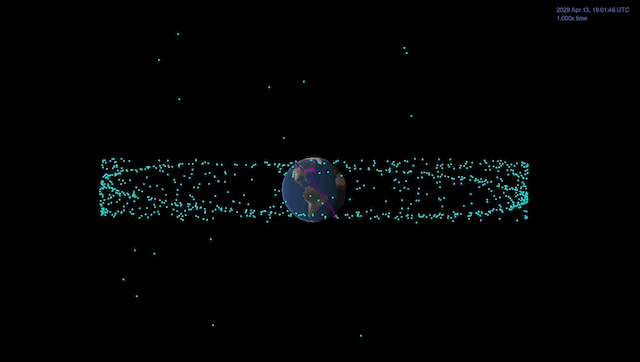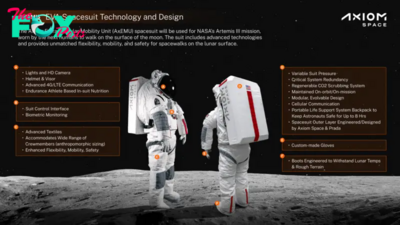Science
'God of Chaos' asteroid Apophis could still hit Earth in 2029, study hints — but we won't know for 3 more years
There is a slim but overlooked risk that the "God of Chaos" asteroid Apophis could hit Earth as it makes a super close approach to our planet in 2029, a new study reveals. The odds of such a calamitous collision are more than one-in-a-billion — but we won't be able to rule it out for at least three more years.
Apophis is a peanut-shaped space rock spanning around 1,100 feet (340 meters) across, or around the same size as the Eiffel Tower. At this size, the chunky space rock is not hefty enough to be considered a "planet killer" asteroid but is big enough to wipe out a large city and trigger planet-wide climatic effects. The "potentially hazardous" object was discovered in 2004 and was named after Apep, the Egyptian serpent god of darkness and disorder, which has earned it the nickname "God of Chaos."
Shortly after the space rock was discovered, astronomers revealed that Apophis would have an extremely close fly-by with Earth on April 13, 2029, sparking fears that it could hit our planet. However, follow-up observations revealed that the asteroid will sail safely past Earth at a distance of less than 20,000 miles (32,000 kilometers) — less than one-tenth the distance between Earth and the moon, according to NASA. This could still be close enough to hit some of our most distant Earth-orbiting satellites.
But large asteroids like Apophis can be nudged off course by impacts from smaller asteroids, similar to how NASA's DART mission successfully redirected the asteroid Dimorphos by smashing a spacecraft into it in 2022. Researchers have previously warned that this could be a possibility with Apophis over the next five years, potentially bumping the city-killer onto a collision course with Earth.
In the new study, published Aug. 26 in The Planetary Science Journal, astronomer Paul Wiegert — an expert in solar system dynamics at Western University in Canada — calculated the odds of such a scenario happening and found that while it was extremely unlikely, it is still possible.
Related: 'Planet killer' asteroids are hiding in the sun's glare. Can we stop them in time?

In March, Weigert was part of a similar study assessing the risk of Apophis being deflected by any known asteroids and found that there was "zero chance" of this happening. However, at the time, the researchers did warn that there was still a chance that an undiscovered asteroid could collide with Apophis.
-

 Science3d ago
Science3d agoInside Capitol Hill’s Latest UFO Hearings
-

 Science3d ago
Science3d agoYou Won’t Want to Miss the Leonid Meteor Shower. Here’s How and When You Can See It
-

 Science4d ago
Science4d agoHere’s What Trump’s Win Means for NASA
-

 Science1w ago
Science1w agoWhy Risky Wildfire Zones Have Been Increasing Around the World
-

 Science1w ago
Science1w agoIt’s Time to Redefine What a Megafire Is in the Climate Change Era
-

 Science1w ago
Science1w ago4 Astronauts Return to Earth After Being Delayed by Boeing’s Capsule Trouble and Hurricane Milton
-

 Science1w ago
Science1w agoThe Elegance and Awkwardness of NASA’s New Moon Suit, Designed by Axiom and Prada
-

 Science2w ago
Science2w agoSpaceX Launches Its Mega Starship Rocket. This Time, Mechanical Arms Catch It at Landing



























